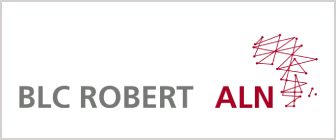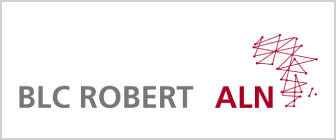Jean-Eric Sauzier of BLC Chambers in Mauritius looks at the latest legislative changes
Introduction
Mauritius sends a strong signal to the International Financial Community and further improves its image as a well regulated International Financial Centre of substance by the introduction of new guidelines for companies holding a Category 1 Global Business License (GBL 1). In that respect the Financial Services Commission (FSC) has amended the rules of Global Business by introducing additional economic substance in Mauritius in order to demonstrate presence, which can be reasonably expected from a corporation managed and controlled in Mauritius. Further, Mauritius is enhancing its position as a jurisdiction of choice for the resolution of business and investment disputes in the African region, by allowing and encouraging shareholders of GBL 1 companies to arbitrate in Mauritius with regards to dispute arising out of the constitution of the company. Another significant development is the enactment of the Copyrights Act 2014, which modernises the intellectual property rights environment in Mauritius and makes Mauritius copyright law compliant with the World Intellectual Property Organisation (WIPO) Copyright Treaty and the WIPO Performances and Phonogram Treaty.
Reinforcement of substance in Mauritius
The new rules seek to reinforce substance in Mauritius by increasing control and management requirements that GBC1s will need to fulfill to be eligible for the Tax Residency Certificate in Mauritius. The guidelines add a supplementary condition to the existing list, in that to satisfy the FSC that it is managed and controlled in Mauritius, a GBL 1 has to meet, as from January 1 2015, at least one of the following:
(a) having office premises in Mauritius;
(b) employing at least one staff on a full time basis;
(c) choosing Mauritius as the seat for arbitration of disputes arising out of its constitution;
(d) holding assets which is worth $100,000 in Mauritius (other than cash and shares in other global business companies);
(e) listing of its shares on a Mauritius stock exchange; or
(f) incurring a reasonable yearly expenditure in Mauritius.
The new rules work hand-in-hand with the guidelines on professional directors, particularly those serving on multiple boards; in particular they must have relevant qualifications and experience to exercise sufficient care, diligence and skills for the good conduct of the business, devote sufficient time and attention to the affairs of each board and be adequately involved in the control and management of each company, among others.
Mauritius – Africa’s centre for International Arbitration
Mauritius has further cemented its position as a jurisdiction of choice in the African region for adjudicating international disputes by allowing and encouraging shareholders of a GBC1 to arbitrate in Mauritius with regards to disputes arising out of the constitution of the company. With the introduction of the new substance rules, Mauritius is envisaging a wider use of its arbitration capacity, in line with the avowed aim of the International Arbitration Act 2008 (IAA), which is to promote the use of Mauritius as a jurisdiction of choice in the field of international arbitration, among others. The IAA has been amended in 2013 to create the most favourable environment for international arbitration to thrive in Mauritius, simplify the recognition and enforcement of foreign arbitral awards, and facilitate the operation of the Convention on the Recognition and Enforcement of Foreign Arbitral Awards in Mauritius.
Further, the Mauritius International Arbitration Centre (MIAC), has in 2011, entered into an agreement with the London Court of International Arbitration (LCIA), thereby establishing the LCIA-MIAC Arbitration Centre and allowing international arbitrations taking place in Mauritius to be governed by a reputable and respected legal infrastructure. In parallel, the Mauritius Chamber of Commerce and Industry (MCCI) Arbitration and Mediation Centre has entered into a strategic partnership with ‘Le Centre de Médiation et d’Arbitrage de Paris (CMAP)’, working under the aegis of ‘La Chambre de Commerce et d’Industrie de Paris’. It is hoped that this development will make the Mauritius venue appealing to countries and investors in francophone Africa as well.
Copyright Act 2014
Prompted by the fast-paced technological change, the legal framework for copyright protection has been substantially revamped with the Copyrights Act 2014, which replaces its predecessor, the Copyrights Act 1997. The new law addresses in particular the issues relating to the internet and piracy. The salient features of the new Copyrights Act include the following:
(g) Protection of works: Every work is protected if it is fixed in some material form irrespective of its mode, form or expression.
(h) Protection of derivative works: The protection of any derivative work is without prejudice to any protection of a pre-existing work or traditional cultural expression or expression of folklore incorporated in or utilised for the making of such work.
(i) Technological protection measures: The new law prohibits the circumvention of effective technological protection measures, the production, importation, distribution, sale, rental, advertisement for sale or rental, the possession of devices, products, components or services for commercial purposes that are promoted, advertised or marketed for the purpose of circumventing effective technological protection measures among others.
(j) Protection of rights management information: A person is prohibited from removing or altering any electronic rights management information without the consent of the right holder, or distributing, importing for distribution, broadcasting or communicating to the public of works or other subject matter protected under the new law from which electronic copyright management information has been removed or altered without the authorisation of the right owner.
(k) Protection of related rights: Protections are afforded to performers taking part in performance taking place in Mauritius, or which is incorporated in a phonogram protected under the new legislation or which has been fixed in a phonogram but is included in broadcasts protected under the new law. Further, protections are afforded to performers, producers of phonograms, broadcasting organisations and originating organisations eligible for protection under any international convention or agreement to which Mauritius is a party.
(l) Visually impaired persons: Special provisions are made for the adaptations of blind, visually impaired or otherwise print disabled persons by allowing, for their benefit, the reproduction and distribution of published work in an alternative manner subject to certain criteria being met.
Partner
BLC Chambers
Ebene
About the author
Jean-Eric Sauzier is a partner at BLC Chambers specializing in Banking and Insolvency. He is also well versed with real estate development, hospitality and information technology. He is regularly instructed by major lending institutions on domestic and cross-border debt and project financing while also advising corporate borrowers in their debt raising efforts. His recent project finance work includes working for the Government of Mauritius on the financing of a toll road project. His insolvency work consists primarily of advising banks on their recovery routes as well as providing them with handholding support through administration, receivership and liquidation procedures. In the real estate area, he has been advising promoters on the development and documentation of their products as well as on the financing of their projects. He has also been quite involved in both the commercial and financing aspects of the hospitality industry.



